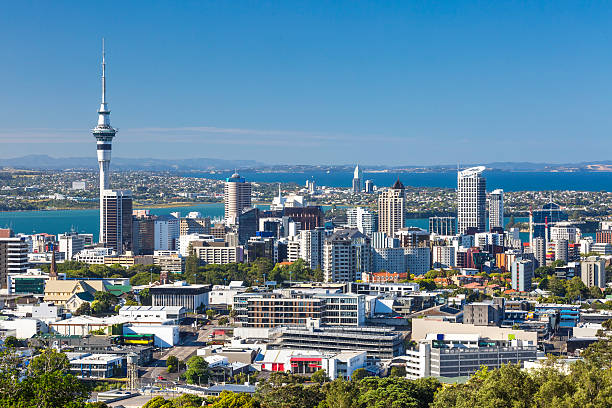Nauru Travel Guide: All you need to know to visit Nauru in 2025
Welcome to Nauru
Nauru Country Information
Nauru is an island located in Central Pacific. Known as the “Pleasant Island,” Nauru offers a warm and inviting atmosphere for travelers seeking a unique, off-the-beaten-path destination. As you set foot on this picturesque island, you’ll be greeted by breathtaking coastal landscapes, crystal-clear turquoise waters, and stunning coral reefs teeming with marine life.
Geography
Nauru, located in the Central Pacific, is the world’s third smallest country, covering an area of only 21 square kilometers. It is a raised coral atoll with a central plateau surrounded by a narrow coastal strip. Nauru’s terrain is relatively flat. Nauru lacks natural freshwater sources, and white sandy beaches and picturesque coral reefs mark its coastline. The island’s compact size allows for easy exploration, with most attractions, including the Parliament House and Buada Lagoon, located within a short distance from each other. With its pristine coastline and rocky interior, Nauru’s unique geography creates a charming setting for visitors to enjoy the island’s natural beauty and experience its peaceful ambiance.
Climate
Nauru has a tropical climate with high temperatures and humidity throughout the year. The island experiences a distinct wet and dry season. The wet season typically occurs from November to February, with increased rainfall and occasional thunderstorms. During this time, the island’s vegetation becomes lush and green. From May to October, the dry season brings drier and more pleasant weather with lower humidity levels. Nauru enjoys abundant sunshine year-round, making it an excellent destination for beach lovers and outdoor activities. The average temperature in Nauru ranges from 25°C (77°F) to 32°C (90°F), offering warm and tropical conditions for visitors to enjoy the island’s pristine beaches and explore its natural wonders. While rainfall is more frequent during the wet season, Nauru’s pleasant climate ensures that there are ample opportunities to experience the beauty of this tiny Pacific island.
Economy
Nauru has a rich cultural heritage that reflects the island’s unique history and diverse influences. The Nauruan people take pride in their traditional customs, language, and music. The Nauruan culture places a strong emphasis on community and family values. Traditional dances, songs, and storytelling play an essential role in preserving and passing down cultural traditions from one generation to the next. The Nauruan language, Nauruan, is widely spoken among the locals, although English is also commonly understood. Christianity is the predominant religion in Nauru, with various Christian denominations coexisting harmoniously. The island’s cultural events and festivals, such as Angam Day and Independence Day, allow locals and visitors to celebrate Nauruan heritage through vibrant parades, music performances, and cultural displays. Nauru’s warm and welcoming people and deep-rooted cultural traditions create a fascinating cultural tapestry that invites exploration and appreciation.
Government
Nauru is a democratic republic with a parliamentary system of government. The country operates under a unicameral legislature known as the Parliament of Nauru, consisting of 19 members elected by the people. The President, elected by members of Parliament, serves as the head of state and government. Nauru follows the principle of a multi-party system, with political parties playing a role in the country’s governance. The government of Nauru focuses on issues such as sustainable development, education, healthcare, and environmental conservation. As a small island nation, Nauru faces unique challenges, including economic diversification, climate change, and cultural heritage preservation. The government works closely with international partners and regional organizations to address these challenges and ensure the well-being of its population. Nauruans taking part in decision-making processes is a vital principle that guides the governance of Nauru, fostering a democratic and inclusive society.
Religion
Nauru is a predominantly Christian country, with Christianity being the dominant religion practiced by most of the population. The largest Christian denominations in Nauru are Protestantism and Roman Catholicism. The Christian faith plays a significant role in the lives of Nauruans, influencing their values, traditions, and daily activities. Churches are essential in Nauruan society, serving as centers for worship, community gatherings, and social events. Alongside Christianity, smaller communities practice other religions, including Buddhism and Islam. Nauru’s religious landscape reflects a spirit of religious tolerance and respect for diverse beliefs, creating a harmonious environment where different faiths coexist peacefully. Religious celebrations and festivals are important occasions for Nauruans to unite, share their faith, and celebrate their cultural heritage.
Population
Nauru has a relatively small population, with an estimated population of around 10,900 people. The majority of the population consists of indigenous Nauruans, who are of Micronesian descent. Nauru’s population is diverse, mixing other ethnicities, including Chinese, Filipino, and European communities. The population density is relatively high, given the island’s small size, which creates a close-knit and tightly connected community. Nauru has a young population, with a significant proportion under 25. The official language of Nauru is Nauruan, although English is widely spoken and used for official purposes. The Nauruan people are known for their warm hospitality and a strong sense of community, reflected in their cultural practices, social interactions, and willingness to welcome visitors to their island home.
Languages
The official language of Nauru is Nauruan, which is spoken by most of the population. Nauruan belongs to the Micronesian language family and is unique to the island. English is expressed as a second language in Nauru. Many Nauruans are fluent in English. Due to its close ties with Australia and other English-speaking countries, English proficiency is relatively high among the population.
Related Articles

5 min read
New Zealand Introduces Key Changes to Post Study Work Visa : What You Should Know
According to the government, this change will provide students with greater flexibility in their academic choices while ensuring they remain eligible to work. For many students, studying abroad is a
Read More
5 min read
The Singapore visa processing time for Indian citizens
Singapore is a small island located in the Malay Peninsula in Southeast Asia. It is one of the most economically developed countries in the world. Singapore is a fantastic place
Read More
5 min read
How Much Does an Australia Trip Cost from India?
If you are planning a trip from India to Australia, you must follow some of the points. that are : Planning Budget Traveling date and time To which place you
Read MoreYes, Indian citizen requires a passport to travel to Nauru.
Yes, you can extend your stay. It can be so by visiting the office of immigration with a valid passport to approve your stay extension.
Apply through us; follow the below step to get your visa through us:
- Choose your preferred Niger visa
- Pay online
- Submit documents to us
- Receive your visa once approved
We recommend you apply for a Nauru visa ten days before your traveling days.
